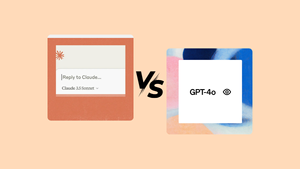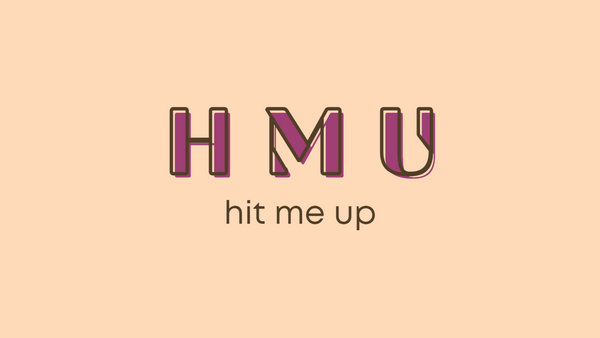Every slang on social media has a story; a journey that drew the course of a minute term to the point when it becomes a linguistic addition. ‘Flex’, like most slang on the internet, has a story. This one’s legacy began at the gym, as a word used to flaunt one’s physical achievements after spending substantial time working out for them.
Originally, ‘flex’ was all about the ‘bod’. Today, netizens have broken the barriers of the stereotype behind the word’s usage and have pushed it further to any aspect a person wants to show off. It’s a sweet transition and evolution, tbh.
Presently, ‘flex’ on the internet isn’t necessarily gym jargon, it’s pretty much synonymous with any kind of overt celebration that may or may not be based on achievement. However, the emotion and intention behind the flaunting can relatively mould the meaning of ‘flex’ — there are times when it may not particularly be a sweet transition.
What is the ‘Flex’ Story and How Did it Get So Popular?
Most of the slang that we use today was influenced by music — hip hop and rap, in particular. Many straightforward words have different, more casual, and diverse meanings because of the way rappers, singers, and most importantly, lyricists intended them when they did.
Music makes an elegant breach into traditional perception, language, and communication and begins relatable branches of the same. ‘Flex’, that was initially the act of contracting a part of the body, came to mean a little or a lot more than just that.
The earliest record (literally) when ‘flex’ was used more than just bodily tightening was in 1993. It’s when Ice Cube said he wouldn’t flex until it was time to have s*x in his track ‘Down For Whatever’. Many artists like Post Malone, Borgore, Iggy Azalea, to name a few, began using ‘flex’ with a connotation farther away from the gym.
Embedded iFrame
Sooner or later, this depiction of the word that appeared in music became part of popular culture and eventually, ‘cultured speech’; online and offline.
Does ‘Flex’ Have Other Sides?
It’s great to flaunt it when you have it. But, not so much when you fake it, to flaunt it. According to the Urban Dictionary (the internet’s most trusted crowd-sourced slang dictionary), ‘flex’ can have more to it than just showing off.
Alongside meaning the act of visibly and openly flaunting, ‘flex’ can also refer to baseless flaunts. In other words, the slang can signify a false image that’s being bragged about without a foundation of genuinity. This use-case of ‘flex’ calls out inauthenticity.
Now, this is a negative side of the word, but not necessarily a ‘bad’ side. There are many times people may show off the things they don’t have for different reasons and ‘flex’ can be used to describe that action! Another way ‘flex’ is used is as an alternative to ‘flirt’.
Urban Dictionary adds that ‘flex’, at times, can be used to sexually or non-sexually pursue. This tangent may seem like it’s out of the box, but there’s a clear correlation to the actual essence of the slang.
How is Flexing Flirting?
When someone flexes, they’re essentially picking out the best part(s) of themselves and low-key celebrating it or making an extravagant display out of it. Nevertheless, it’s a rose-tinted perception. It’s not immoral to paint the perfect picture of yourself if you want to. Many times, most of us don’t prefer talking about the climb as much as bragging about the view. So, giving a rosy picture of the end isn’t a crime.
Now, in the scenario of flexing, a person’s best version is out there. It’s time to make a wild guess. Name another time when this happens? While flirting! Of course. Everyone’s imperfect but nobody likes to put that imperfection on their forefront while being flirty. The goal is to either stir a potential connection, attract, or impress, after all.
Sure, if the relationship works out and moves past the flirting, the infatuation, and the sheets, perfection would have a different definition. But, when two or more people are new to each other in a romantic context, everyone’s flexing if they’re flirting. How else would you spark an interest? So, ‘flex’ does have a ‘flirting’ connotation and an understandable one that too.
What Does the Famous ‘Weird Flex, But OK’ Phrase Even Mean?
Ever since ‘flex’ hit the social media universe, it has been another word for ‘show off’. We’ve always recognized the bragging streak in fellow humans, now, we have a colloquial term for the same phenomenon. This made us call out show-offs in any corner of virtual and real life. But, something came along. Something more specific.
Each time a person showed off on the internet, they were either admired, instantaneously dismissed for the showy attitude or drew inspiration for their ‘flex energy’. But, then, people began showing off the weirdest things that were more often than not, uncalled for.
The internet may be scandalously personal, but, nobody prefers knowing anybody’s utmost private life (unless there’s special or professional interest). There were overwhelming snippets from personal lives — ones that couldn’t be unseen or unheard once witnessed. This kind of flexing was unnecessary and these strange flexes earned the ‘weird flex, but ok’ response.
The earliest usage of this phrase, so far, is said to have been in 2018. In fact, this is possibly where the phrase took birth. When activist Malala Yousufzai listed out her 2017 accomplishments on Twitter, a fellow Tweeter (Flinn Feighery), requoted the tweet with a ‘Weird flex, but OK’ caption. This was the beginning of the colloquial catchphrase.
Weird flex but ok https://t.co/zASfnB1O30— Finn Feighery (@finnfeighery) January 1, 2018
Embedded JavaScript
If achievements are overly shown, if they are inappropriate, awkward, unnecessary, cringe, insignificant, irrelevant, by nature, or when anything crosses the boundaries of paramount privacy, they can be ‘weird flexes’. The ‘but, OK’ part adds to the existent dismissive attitude in the response (‘weird flex’ needn’t always need a ‘but ok’). It evokes helpless interest because now, what’s witnessed cannot be un-witnessed.
How to Use ‘Flex’ Online and Offline?
There are three main reasons you can use the slang ‘flex’ — while referring to a genuine show-off, a fake show-off, and an awkward show-off. All can apply to yourself as well.
A proud moment for someone can be perceived as a moment of flex by the audience. It needn’t necessarily always be an arrogant display of achievements, but, sometimes, even a benign announcement can be a flex. You can use the term either to call out someone’s show-off, to appreciate it, or to speak of your own.
The genuine flex
LinkedIn is the best example of genuine flexes. Everyone’s positively showcasing their talents, skills, professional achievements, and all of it is a flex. This branch of flexing is an authentic exhibit of personal and professional milestones. So, when you do use ‘flex’ in this context, it’s more like rooting for the person(s) than mocking/ridiculing them.
However, there comes a point when it can get too much — and not necessarily just on platforms like LinkedIn. When genuine flexes that were initially celebrating hard-earned wins get suffocating, then, that’s a flex — but with a dismissive undertone.
Here are some examples:
- I’m so happy to announce that I’ve been selected as the lead representative of XYZ.
Your flex right now is so amazing, I’m jealous. But happy for you! - Sitting here, in this couch, I’ve made more than any of you can imagine.
Geez. The flex here is nauseating. This sends me straight to the bathroom! - My hustle is my flex.
- I finally landed a job!!
You go, man! This is a well-deserved flex for ya! - Last week accomplishments: *followed by a list of 15 things*
Dude, you be flexing so hard and attracting all the envy you possibly can.
The fake flex
This one downright has no positive side to it. The person’s falsely celebrating something that they did not work for or worse, did not even achieve (with or without subjective work). This tact to build image, influence perception, and probably even gain from being a fraud or promoting a fraudulent image is a flex — but a frowned-upon one. Like:
- She said she got selected for the position. Such an insecure flex, I’m stunned.
- Hurray! We made a billion dollars last year!
Ugh. Sweet flex, wish that were true. - He flexes so much but hardly knows anything through. Sad.
The awkward flex
Weird flex, but OK. This use case is strictly dedicated to the viral meme and focuses on how you can use it practically. You can both text it out, or make memes! Regardless of the usage, there’s one important condition while using ‘flex’ in this scenario — the so-called achievement must be inappropriate, unnecessary, irrelevant, controversial, or anything that raises more questions than answers. For instance:
- Gurl, guess what? I finally bit my dog after warning her while she was biting me. Serves her right!
Uhhh. Weird flex, but OK. - He said he was busy painting his ex’s house, so he couldn’t pick up the phone.
What? Weird flex, but whatever xD - Dude I took a shower after 3 days, man. Feel fresher than ever!!
Weird flex, mate. But OK, I’ll bear that for ya. - ___ purchased a pig for $1500 and is now thinking of legally adopting it.
Celebs have the weirdest flexes.
Analysis
Since the slang ‘flex’ takes root at the gym, it may have caused it to carry forward the ‘showiness’ that it does. Any gym goer would love a good flex once in a while. No hate here. Flexing, at its core, is the healthy practice of flaunting something that you genuinely worked hard for. The reason it gets unhealthy and sometimes overbearing is when the matter of achievement gets repetitive on a public scale.
When someone shows off the same thing over and over until an audience is fed up, it matches the idea of ‘flex’ that’s popular on social media today. But, a flex needn’t always be a nauseating display of achievements, it can be a personal celebration too. A person’s flex, after all, is what they’re good/better/best at — with or without the hype. To make this premise come true, a flex is faked at times.
Unlike consumers of probably a decade ago or longer, the people of this day can sniff inauthenticity a mile away. All thanks to the internet. It has not only brought us closer but also narrowed our personal spaces. Someone’s personal life is often their social media account. Ironic, isn’t it? That’s not necessarily a bad thing, but, with this kind of exposure, people can identify inconsistency in the blink of an eye — and it wouldn’t take very long to point out a fake flex.
Nevertheless, a flex is only as good as it’s intended and perceived. If it’s shown with arrogance, it will be noticed and labeled as such. If it’s purely a moment of self-appreciation, then that’s a well-deserved flex. If your flex is false, it will be identified and dismissed. ‘Flex’ in itself doesn’t always and instantly disregard!
Conclusion
The ‘flex’ slang and its parts of speech, on social media, are synonymous with showing off. This show-off can be positive, negative, fake, or bluntly weird. A ‘flex’ is both, one’s brag and someone else’s response to that brag.
The slang may have begun at the gym, but today, it recognizes anything that a person puts, has put, and is putting effort into. It’s something a person’s good at, is getting good at and/or has always been bawse at it.










Member discussion